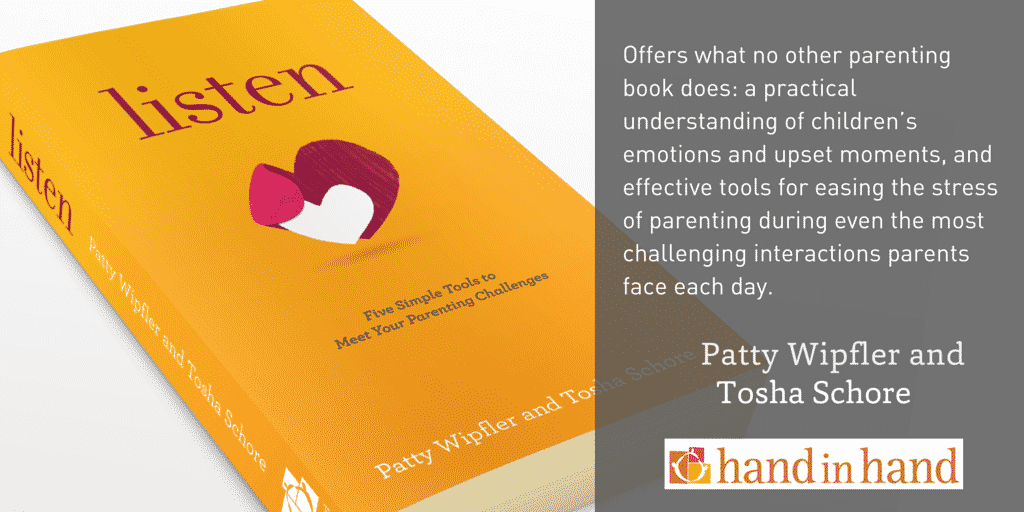![]()
 Dear Hand in Hand
Dear Hand in Hand
I've worked really hard to support my daughter when she cries recently. When I hold her and tell her I'm listening she does come to a point when her tears clear, and she seems happy and fine to move on. But I'm worried that after she goes off we have no time to talk about what happened.
Yesterday she grabbed her brother's toy, and then just about exploded when I held the limit that she should give it back. Because I know her brain was in overwhelm when she cried, I didn't try to talk to her about the behavior. But after she finished crying, she went to play while I made dinner. I planned on bringing it up when we ate. But all through dinner she was happy and giggly, and incredibly sweet and kind to her brother, even feeding him bits of pasta. I didn't want to break the mood so we didn't talk about sharing. Have I missed the moment?
Confused mom.
Dear Confused Mom,
Don’t discuss a child’s cry or tantrum with her afterward. It’s tedious. It’s beside the point. There’s nothing to be figured out. When a child has offloaded debilitating feelings, she’s ready to enjoy the intelligence she just freed up. If you grill her after every emotional episode, she’ll want to confide in you less and less. Listen well. Then trust her to sort things out while playing, sleeping, or downing a bowl of pasta.
She’ll know she wasn’t supposed to grab from her brother. No lecture needed.
In fact, it might be helpful here to compare the workings of your child’s emotional life to her digestive system. When she eats a banana, for example, her system extracts the nutrients, and not a thought goes into it! She is nourished, although not everything in that banana is digestible. Her body takes what it needs, and has a fine disposal system for the rest. Your child pees and poops the indigestible part away. Her elimination process is frequent and inconvenient for several years, and it’s not the most pleasant stuff to deal with! But we parents make all kinds of allowances for these necessities.
Now consider your child’s daily experience. You offer her the very best life you can provide. She learns. She thrives. But every day there are moments that jam her delicate system. The cat scratches her. Mommy is pregnant, tired, and bothered. The child next door calls her a name. At bedtime, her room feels scary. Each of these experiences carries an emotional charge.
To keep thinking well, she needs to defuse that charge, so she can process those experiences and learn from them. And she’s got a system for that! You play chase with her after dinner, and she laughs hard, releasing tension and stoking her sense that you cherish her. Then she loses a tiny Barbie shoe down the bathtub drain and has a good cry. Voila! She has tidied up on the inside and is ready for a good day tomorrow.
When your child poops or pees, it doesn’t worry you. And you certainly don’t feel compelled to examine what goes into the diaper or toilet, figure out where it came from, and discuss why it’s there. It’s “flush and go”.
You’ll want to make your child’s experience of releasing emotional tension that simple. She laughs, has a tantrum, cries, or trembles and writhes in fear.
You anchor her; she finishes. It’s time for some fun!
Make parenting less stressful: 5 Revolutionary Ideas That Make Parenting Less Stressful
The response in this post is taken from the book Listen: Five Simple Tools to Meet your Everyday Parenting Challenges, now available paperback, eBook, and audio. 